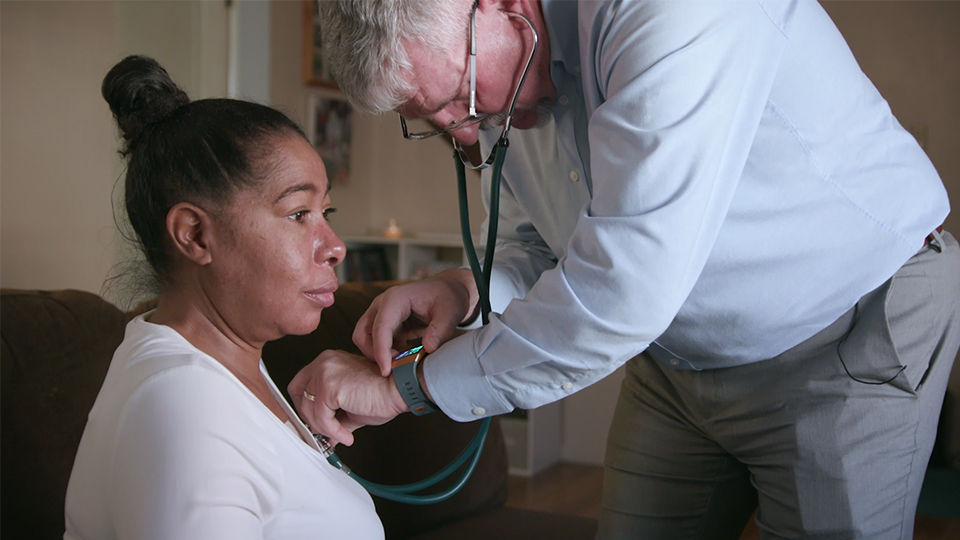Neurological conditions requiring specialty drug therapies are incredibly diverse, and affect millions of people worldwide, encompassing prevalent diseases like multiple sclerosis (MS) and Parkinson’s disease as well as rare and orphan conditions such as myasthenia gravis (MG), amyotrophic lateral sclerosis (ALS), and spinal muscular atrophy (SMA). Given the complex nature of neurological conditions, new therapies have only a 5.9% chance of FDA approval from phase 1, which highlights the significant challenges in developing effective therapies for these diseases, compounding the already substantial unmet needs patients face regarding the availability and accessibility of health care services.
“At Accredo, we’re witnessing a transformation in neurological care as innovative treatments move from research to reality,” said Stefanie Pitts, senior clinical manager at Accredo Specialty Pharmacy, part of Evernorth Health Services. “Our specialized teams are committed to understanding both the clinical complexities of these conditions and the personal challenges patients face, providing support that extends beyond medication to address the complete patient journey.”
Trends transforming neurological care
Innovative treatments in the pipeline targeting both symptoms and root causes of these conditions are changing the landscape of neurological care.
- Treatments addressing underlying causes: MS represents a prime example of the evolving treatment landscape. Over the past decade, high-efficacy disease-modifying treatments have been introduced, which slows MS progression by targeting the underlying causes. We are also closely monitoring research into BTK inhibitors, which have shown promise in managing MS progression due to their anti-inflammatory properties.
- The emergence of new specialty treatments: Conditions such as myasthenia gravis (MG) are now being managed with specialty treatments, moving away from traditional non-specialty medications. These new treatments, which can be disease-modifying or complementary, offer transformative benefits but require more intensive management to balance treatment safety and tolerance.
- Gene therapies: Another growing trend in treating the root causes of neurological conditions is gene therapies. Gene therapies are single infusions that work by altering genes in specific types of cells. Gene therapy holds immense potential for treating neurological disorders with a clear genetic basis such as spinal muscular atrophy (SMA). For conditions like SMA, gene therapy can potentially halt disease progression in children.
- New modes of administration: New treatments also introduce innovative modes of administration. For example, pump-delivered treatments provide a constant flow of medication, which can be particularly effective for people with Parkinson’s disease as the condition progresses and their digestive system does not absorb medication in a consistent way.
Accredo supports patients across the neurological condition spectrum
Neurological conditions can affect individuals at different stages of life. Some, like SMA, begin in childhood, while others, like ALS and Alzheimer’s, typically appear later in life. Accredo ensures that our specialty pharmacists and clinicians are well-versed in the breadth and complexity of these conditions to help facilitate conversations with patients, their caregivers, and prescribers to optimize treatment impact.
Accredo clinicians provide comprehensive support through our customized Therapeutic Resource Centers (TRCs). These centers focus on specific condition states, including neurology and multiple sclerosis, rare diseases, and immune and complex conditions. Our TRC teams consist of clinical experts, including pharmacists, nurses, dietitians, and social workers, who receive extensive training in areas where patients have unique needs. Some examples of how our TRCs are uniquely serving neurology patients include:
Digital onboarding for non-verbal patients:
Speech difficulties for patients with ALS may make telephone communication difficult. When a new referral is received for a non-verbal patient, we conduct our digital welcome process over email to gather necessary information, deliver key benefit information, and arrange initial shipment logistics. Once patients are onboarded electronically, they can manage refills through the Accredo app or via text.
Improving medication adherence:
Medication adherence is crucial for managing neurological conditions and preventing adverse outcomes. Our specialty clinicians, trained in motivational interviewing, help at-risk patients explore and improve medication adherence with the goal of getting them back on track. These targeted interventions have led to an 18% increase in adherence within 6 months across specialty conditions, including neurology.

Depression screening:
TRC teams are also trained to recognize and screen for symptoms of depression, which are highly prevalent in neurological conditions. In 2024, clinical staff in the neurology and multiple sclerosis TRCs conducted over 36,000 depression screenings, with about 13% of patients testing positive for symptoms. Our clinicians promptly notify the patients’ prescribers and offer support from our social workers.
“Through our focus on personalized care and innovative support, Accredo is dedicated to improving the lives of patients with neurological conditions, ensuring they receive the comprehensive and compassionate care they need,” Pitts said.
Evernorth’s Accredo Specialty Pharmacy raises the standard in specialty pharmacy, delivering care beyond the prescription and additive savings beyond the trend. Through our pharmacy model, plan sponsors can count on competitive specialty drug pricing and access to the specialty therapies your members need. We provide condition- and drug-focused expertise that prepares you for what’s ahead while driving the most value for you now. Our pharmacy engine propels savings to you and delivers well-being support for your members at no cost.


